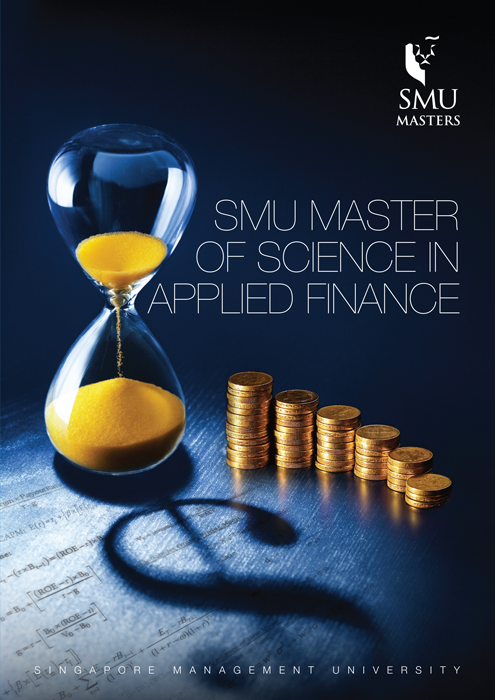
The world's biggest economies are in recession, while unemployment rates are only just starting to see signs of recovery. Despite the economic chaos triggered by the pandemic, the property market in Singapore hit a three-year high in 2021, with sales quickly rebounding in both the private and public housing sectors amid Covid-19 lockdowns and restrictions.
This phenomenon of a pandemic-era real estate boom isn't confined within our little red dot, but it is also a global trend that has seen home prices shooting up in major cities, as well as suburban towns worldwide. With property prices seemingly surging at a relentless clip, are we in the midst of a real estate bubble?
Here are some insights from LKCSB Associate Professor of Finance Song Changcheng on the triggers behind the current boom; whether investors need to prep for an impending housing market crash, as well as the longer-term impact of Covid-19 on the real estate market.
Pandemic-fuelled price jump
The first reason behind rising property prices in the last two years, according to Changcheng, is that central banks have reduced interest rates in a bid to stimulate the economy and prevent an economic recession during a drawn-out pandemic.
"One of the key considerations as a homebuyer is the availability of a cheaper loan (low-interest rates) from the bank to buy a property," states Changcheng, whose research interests include real estate economics and household finance.
"So when interest rates go down, the borrowing cost is lower, and there's greater demand. And while most of us assume that the pandemic is a negative shock to employment on the whole, in actuality, the impact can vary from one industry to the next."
The sectors hardest hit by the pandemic are service-oriented and involve face-to-face interactions, such as restaurants. However, Changcheng notes that plenty of working professionals with higher personal incomes, such as lawyers, software engineers or accountants, are not particularly affected by the economic effects of the pandemic. These individuals are also more likely to be in the market for a new home or invest in real estate. Now that loans are relatively affordable due to low interest rates, such buyers are also motivated to purchase new properties.
Bubble, toil and trouble?
Although the rise in property prices may appear dramatic in the past year, Changcheng explains that a property bubble is not solely determined by growth rates of sales volume and prices.
"The key thing to look for in a bubble is whether or not the fundamental demand is healthy," explains Changcheng.
"Normally, there are two types of buyers: one buys real estate to live in and doesn't 'flip' the property. The other buyer is an investor or speculator who buys a house to collect rental revenue or flips it for capital gains."
For the first category of buyers, the critical factor is whether they can truly afford the home and can repay their mortgage loans within a stipulated period, or if they face financial difficulties and have to file for bankruptcy or foreclosure, resulting in defaulting on their loans. If the latter occurs on a large scale, the market will likely slide into a property market collapse. However, the Singapore government has put in place a series of measures to prevent home purchasers from buying a property beyond their means, such as the Total Debt Servicing Ratio Rules (TDSR), which caps the portion of a borrower's gross monthly income that goes towards repaying the monthly debt obligations.
Further regulations imposed by the government like the Additional Buyer's Stamp Duty (ABSD), which imposes hefty duties on purchasing a second residential property and beyond, also serve as a deterrent against real estate speculation.
"It also doesn't make sense for most foreign investors to come to Singapore to buy a house because they have to pay an additional 20 per cent ABSD," remarks Changcheng.
"Looking at the market in Singapore, although the prices are increasing a lot in the past year, I am not too worried about a bubble as the growth is mostly driven by fundamentals."
Up-and-coming property sectors to watch
Besides residential properties or traditional commercial real estates like offices and retail outlets, Changcheng also points out less traditional assets that can be added to an investor's portfolio. For example, data centres – a building or designated physical space for storing computer systems and IT equipment, have been sought after as an alternative property asset class, especially as the pandemic accelerated the move to remote work and the use of technological tools.
"The fundamental demand comes from the digitalisation of all industries, especially as we move online during Covid-19," observes Changcheng.
The three real estate investment trusts with substantial data centre assets listed on the Singapore Exchange averaged 20 per cent returns in 2020, for example, and the market for hosting, storage and computing cloud services is expected to be worth US$163 billion in 2021. But Changcheng warns that as prices for data centres have already skyrocketed, investors should conduct thorough research and calculations to ensure any data centre investment is worth the risk.
The same could also be said for another property sector to consider: student accommodation. While the pandemic has given rise to international travel restrictions, domestic students living in larger countries like the US or UK still tend to move from their hometowns to another state or city to pursue a university education.
"This demand is countercyclical to economic trends in the sense that when the economy is bad, there are more students who want to go to school or pursue their Master's degree," says Changcheng, who adds that nursing homes, medical centres and other healthcare facilities may also be worthwhile investments due to the growing global ageing population.
Furthermore, he observes a trend of decentralisation in the short run, where major city dwellers are moving away from the urban core to the suburbs due to the rise in work-from-home arrangements and lockdowns. This results in a sharp uptick in suburban home sales or rental prices, while property prices in cities remain relatively stagnant. Likewise, in Singapore, the vacancy rate of commercial units in the central business district has risen in the last year-and-a-half as businesses adopted remote work arrangements. Still, suburban retail rental has gone up — as businesses cater to the increased needs of residents in their vicinity.
Researchers believe, says Changcheng, that when the pandemic eases, the population may flock back to city centres. This occurrence may, in turn, result in a reversal of property prices. He quips: "I think that's an exciting thing to watch in the next three to five years. There can potentially be a lot of opportunities for investment in central areas once again."
Speak to our Admissions Advisors
Lee Kong Chian School of Business
Postgraduate Admissions
Singapore Management University
Lee Kong Chian School of Business
Graduate Programmes Office, Level 4
50 Stamford Road, Singapore 178899
Tel: +65 6828 0882
Join us at the upcoming events
Ofukacho, 1−1 ヨドバシ梅田タワ
Osaka, Kita Ward, 〒530-0011, Japan
Kyobashi, 1 Chome−3−5 三井ガーデンホテル 1F
Chuo City, Tokyo, 〒104-0031, Japan
Lee Kong Chian School of Business
Level 4, Postgraduate Office
50 Stamford Road
Singapore 178899
We will be sending the zoom link 2 hours before the start of the event.
You are required to download the Zoom app & sign
